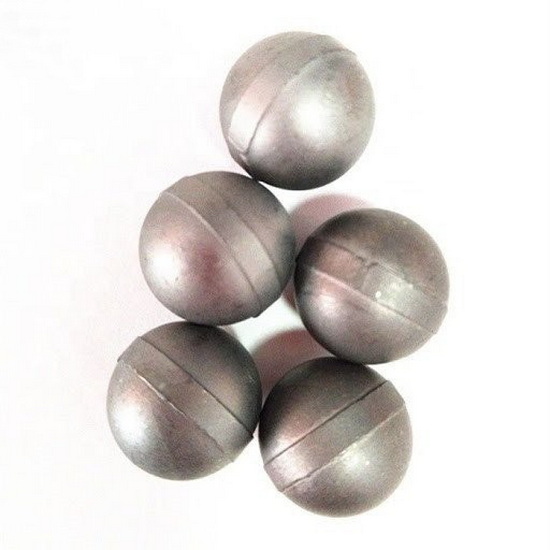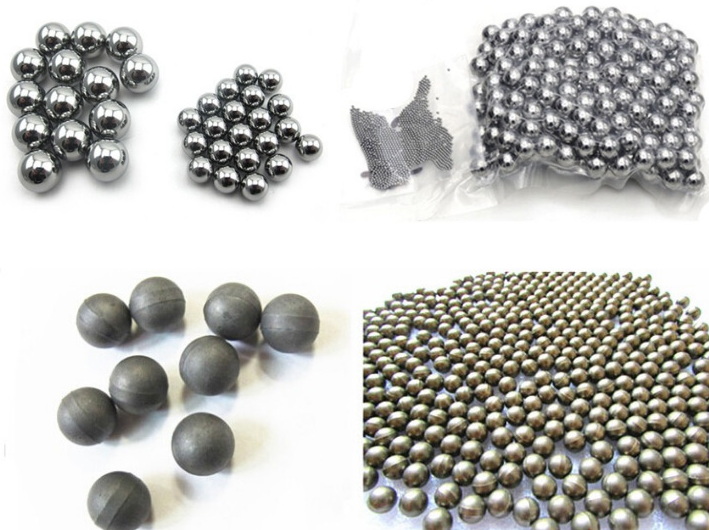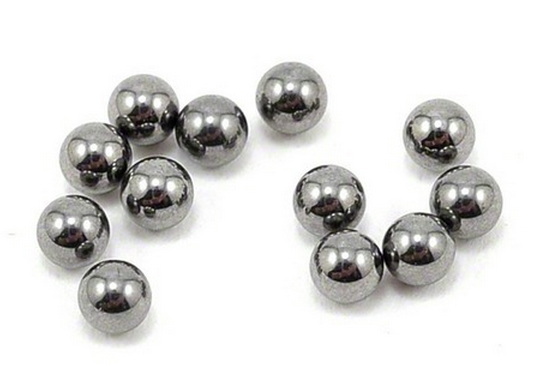Content Menu
● Understanding Tungsten Carbide Balls
● Factors to Consider When Choosing Suppliers
>> Quality of Products
>> Range of Products
>> Customization Options
>> Manufacturing Capabilities
>> Pricing and Value
>> Customer Service and Support
>> Reputation and Reviews
>> Delivery and Lead Times
>> Location
>> Compliance and Certifications
● Steps to Evaluate Potential Suppliers
>> Step 1: Research
>> Step 2: Request Quotes
>> Step 3: Evaluate Samples
>> Step 4: Check References
>> Step 5: Make a Decision
● Additional Considerations
>> Industry Trends
>> Environmental Considerations
>> Long-Term Partnerships
>> Technical Support
● Conclusion
● Frequently Asked Questions
>> 1. What are tungsten carbide balls used for?
>> 2. How do I know if a supplier is reputable?
>> 3. Can I get custom sizes of tungsten carbide balls?
>> 4. What factors affect the price of tungsten carbide balls?
>> 5. How important is customer service when choosing a supplier?
When it comes to industrial applications, tungsten carbide balls are essential components used in various fields, including manufacturing, automotive, aerospace, and medical industries. These balls are known for their exceptional hardness, wear resistance, and durability, making them ideal for applications that require high precision and reliability. However, selecting the right supplier for tungsten carbide balls can be a daunting task, given the multitude of options available in the market. This article will guide you through the process of choosing the best tungsten carbide balls suppliers for your needs, ensuring you make an informed decision.

Understanding Tungsten Carbide Balls
Before diving into the selection process, it's crucial to understand what tungsten carbide balls are and their applications. Tungsten carbide is a composite material made from tungsten and carbon, known for its hardness and resistance to wear. These balls are used in various applications, including:
- Ball Bearings: Used in machinery to reduce friction and wear.
- Valves: Essential in controlling the flow of liquids and gases.
- Gauging and Measuring Instruments: Used for precision measurements.
- Cutting Tools: Employed in machining and manufacturing processes.
Factors to Consider When Choosing Suppliers
Quality of Products
The first and foremost factor to consider is the quality of the tungsten carbide balls. High-quality balls will have consistent hardness, size, and finish. Look for suppliers who adhere to industry standards and have a reputation for producing reliable products. You can assess quality by requesting samples or reviewing product specifications.
Range of Products
Different applications require different types of tungsten carbide balls. Some suppliers may specialize in specific grades or sizes, while others may offer a broader range. Ensure that the supplier you choose can provide the specific type of tungsten carbide balls you need for your application. This includes variations in size, grade, and surface finish.
Customization Options
In many cases, standard tungsten carbide balls may not meet your specific requirements. Look for suppliers that offer customization options, such as the ability to produce balls in specific sizes, grades, or finishes. This flexibility can be crucial for applications that require precise specifications.
Manufacturing Capabilities
Understanding the manufacturing capabilities of a supplier is essential. Suppliers with advanced manufacturing processes and technologies are more likely to produce high-quality products consistently. Inquire about their production methods, quality control measures, and any certifications they hold.
Pricing and Value
While price is an important factor, it should not be the sole consideration. Compare the pricing of different suppliers, but also evaluate the value they offer. A lower price may come at the expense of quality, so it's essential to find a balance between cost and quality. Look for suppliers who provide transparent pricing and detailed quotes.
Customer Service and Support
A supplier's customer service can significantly impact your experience. Look for suppliers who are responsive, knowledgeable, and willing to assist you with any inquiries or issues. Good customer support can make the procurement process smoother and more efficient.
Reputation and Reviews
Research the reputation of potential suppliers by reading customer reviews and testimonials. A supplier with a strong track record of satisfied customers is more likely to provide quality products and services. You can also ask for references from other businesses in your industry.
Delivery and Lead Times
Consider the supplier's ability to meet your delivery requirements. Timely delivery is crucial in maintaining production schedules. Inquire about their lead times and shipping options to ensure they can meet your deadlines.
Location
The location of the supplier can also play a role in your decision. Local suppliers may offer faster shipping times and lower shipping costs. However, don't limit your options to local suppliers; sometimes, the best quality and pricing may come from suppliers located further away.
Compliance and Certifications
Ensure that the supplier complies with relevant industry standards and regulations. Certifications such as ISO 9001 can indicate a commitment to quality management and continuous improvement. Suppliers with proper certifications are more likely to adhere to quality standards.

Steps to Evaluate Potential Suppliers
Step 1: Research
Start by conducting thorough research on potential suppliers. Use online resources, industry directories, and trade shows to identify suppliers that specialize in tungsten carbide balls. Create a shortlist of potential candidates.
Step 2: Request Quotes
Contact the shortlisted suppliers and request quotes for the specific tungsten carbide balls you need. Provide them with detailed specifications to ensure accurate quotes. Compare the quotes based on pricing, quality, and delivery times.
Step 3: Evaluate Samples
If possible, request samples from the suppliers. Evaluate the samples for quality, consistency, and suitability for your application. This hands-on assessment can provide valuable insights into the supplier's capabilities.
Step 4: Check References
Ask the suppliers for references from previous clients. Contact these references to inquire about their experiences with the supplier, including product quality, customer service, and delivery reliability.
Step 5: Make a Decision
After evaluating all the information gathered, make an informed decision. Choose the supplier that best meets your needs in terms of quality, pricing, and service.
Additional Considerations
Industry Trends
Stay informed about the latest trends in the tungsten carbide industry. Innovations in manufacturing processes, material science, and applications can influence your choice of supplier. Suppliers who are at the forefront of these trends may offer better products and services.
Environmental Considerations
Consider the environmental practices of potential suppliers. Suppliers who prioritize sustainability and environmentally friendly practices may align better with your company's values and goals. Inquire about their waste management, energy use, and sourcing of raw materials.
Long-Term Partnerships
Think about the potential for a long-term partnership with your chosen supplier. Establishing a strong relationship can lead to better pricing, priority service, and collaboration on future projects. Look for suppliers who are willing to invest in a long-term partnership.
Technical Support
Some suppliers offer technical support and expertise in addition to their products. This can be beneficial if you require assistance with product selection, application advice, or troubleshooting. Suppliers with a knowledgeable technical team can add significant value to your procurement process.
Conclusion
Choosing the best tungsten carbide balls suppliers for your needs requires careful consideration of various factors, including product quality, range, customization options, and customer service. By following the steps outlined in this article, you can make an informed decision that will benefit your business in the long run. Remember that the right supplier can significantly impact your operations, so take the time to evaluate your options thoroughly.

Frequently Asked Questions
1. What are tungsten carbide balls used for?
Tungsten carbide balls are used in various applications, including ball bearings, valves, gauging instruments, and cutting tools due to their hardness and wear resistance.
2. How do I know if a supplier is reputable?
You can assess a supplier's reputation by reading customer reviews, checking references, and looking for industry certifications such as ISO 9001.
3. Can I get custom sizes of tungsten carbide balls?
Many suppliers offer customization options, allowing you to order tungsten carbide balls in specific sizes, grades, and finishes to meet your application needs.
4. What factors affect the price of tungsten carbide balls?
The price can be influenced by factors such as the quality of materials, manufacturing processes, customization options, and the supplier's location.
5. How important is customer service when choosing a supplier?
Good customer service is crucial as it can impact your overall experience, including communication, support, and problem resolution during the procurement process.
















